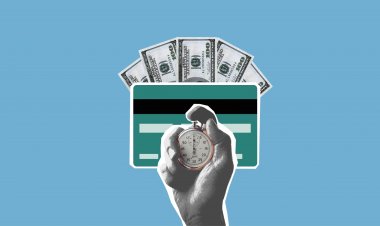Elevate Your Financial Profile: A Guide to Boosting Your Credit Score
Boost Your Credit Score: Explore Expert Strategies and Tips for Elevating Your Financial Profile. Unlock Better Opportunities and Achieve Your Financial Goals.

Elevate Your Financial Profile: A Guide to Boosting Your Credit Score
Introduction
Your credit score is a vital indicator of your financial health. It influences your ability to secure loans, obtain favorable interest rates, and access various financial opportunities. Whether you're looking to buy a home, get a credit card with better rewards, or simply improve your financial standing, increasing your credit score is a key step. In this blog, we'll discuss practical strategies to boost your credit score and manage your financial reputation effectively.
Chapter 1: Understanding Your Credit Score
Before we dive into strategies for increasing your credit score, it's essential to understand what a credit score is and how it is calculated. We will cover topics such as:
-
What is a credit score? - An overview of what a credit score is and why it matters.
-
Credit Score Ranges - The different credit score ranges and what they mean for your financial health.
-
Factors Affecting Your Credit Score - An exploration of the key factors that influence your credit score, such as payment history, credit utilization, and more.
Chapter 2: Obtain and Review Your Credit Report
Your first step in boosting your credit score is to obtain and review your credit report. This chapter will guide you through the process, including:
-
Getting Your Credit Report - How to request a free copy of your credit report from each of the three major credit bureaus.
-
Reviewing Your Credit Report - How to examine your credit report for errors, discrepancies, and areas that need improvement.
Chapter 3: Pay Your Bills On Time
Timely payment of bills is one of the most critical factors influencing your credit score. In this section, we will discuss:
-
Payment History - How your payment history affects your credit score.
-
Setting Up Payment Reminders - Strategies for ensuring you never miss a due date.
-
Negotiating with Creditors - How to work with creditors if you're having trouble making payments.
Chapter 4: Manage Your Credit Utilization
Credit utilization refers to the amount of available credit you're currently using. This section will cover:
-
Understanding Credit Utilization - What it is and why it matters.
-
Lowering Credit Card Balances - Strategies for reducing your credit card balances.
-
Requesting Credit Limit Increases - How increasing your credit limit can positively impact your credit utilization ratio.
Chapter 5: Diversify Your Credit Mix
A diversified credit portfolio can have a positive effect on your credit score. We'll discuss:
-
Types of Credit Accounts - The different types of credit accounts you can have.
-
Opening New Credit Accounts - How to strategically add new accounts to diversify your credit mix.
Chapter 6: Avoid Opening Too Many New Accounts
While diversifying your credit mix is essential, opening too many new accounts within a short period can have a detrimental impact. This section will provide tips for:
-
Strategic Account Opening - How to be judicious when adding new credit accounts.
-
Understanding Credit Inquiries - How credit inquiries affect your score.
Chapter 7: Address Any Negative Items on Your Credit Report
If your credit report contains negative items, such as late payments or collections, it's essential to address them. We will discuss:
-
Disputing Errors - The process of disputing inaccuracies on your credit report.
-
Negotiating with Creditors - How to negotiate settlements for overdue accounts.
Chapter 8: Be Patient and Persistent
Improving your credit score takes time. We'll conclude with advice on:
-
Setting Realistic Expectations - Understanding that credit score improvement is a gradual process.
-
Staying Committed - The importance of maintaining good credit habits over the long term.


























